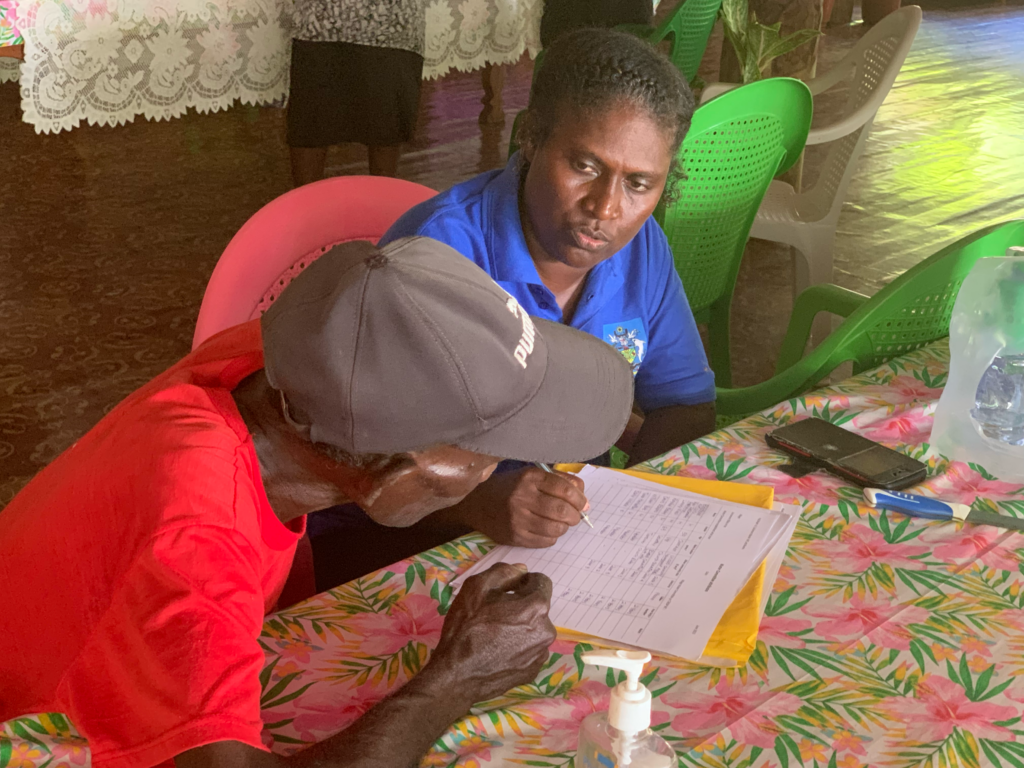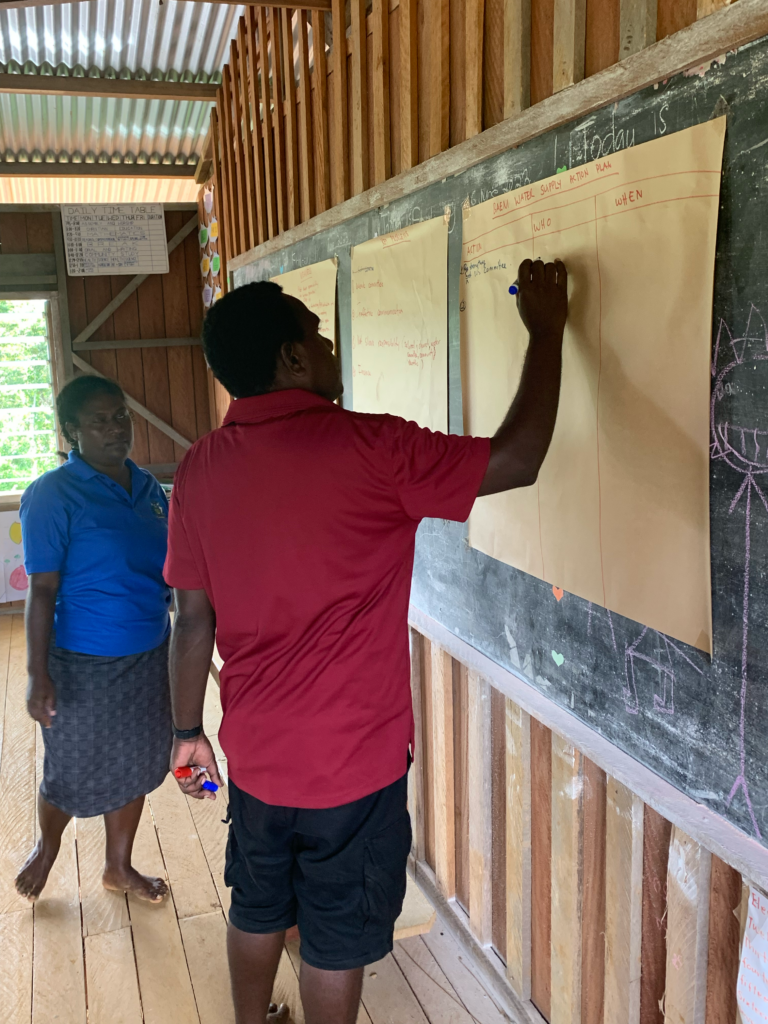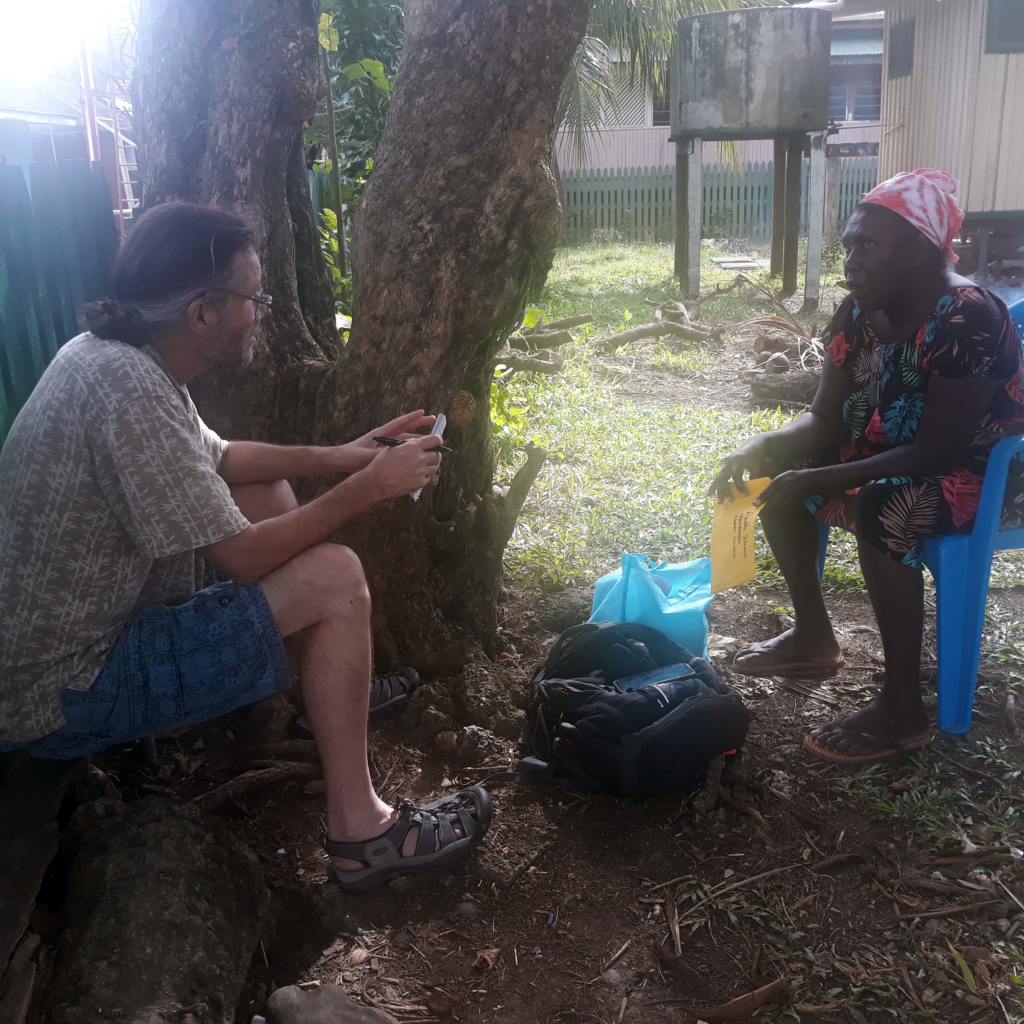
- Research project
- – Western Pacific
In June-July 2023, Dr Mark Love visited Solomon Islands to work alongside our research partners from Solomon Islands National University to undertake formative and action research on Provincial-level WASH policy and implementation. The focus is on the challenges and benefits of WASH decentralisation/devolution – specifically in the context of community-based water management (CWM).

The unique geographic and sociocultural diversity of Melanesia, and the challenges and strengths that such contexts pose SDG6 aspirations, is no more evident than in the Western Province, Solomon Islands, where a small team of dedicated Environmental Health Division (EHD) and Rural Water Sanitation and Hygiene (RWASH) officers seek to improve the water, sanitation and hygiene (WASH) situation in hundreds of rural villages spread across 11 islands (26 wards) in an area covering 5,500km2. The impacts of climate change – as well as logging – are sharply evident, affecting water services and access in hundreds of villages, on a daily basis. Effective CWM is critical to ensuring sustainable, inclusive and climate resilient water services.

The research goal of this trip was both formative and action research focused. Interviews were undertaken with national and provincial government representatives, ward development committee members, and community water committee members, with attention on decentralisation/devolution trends (WASH and non-WASH), especially in relation to the RWASH Strategic Plan. Additionally, this trip included visits to four villages in the Western Province – Kaza, Nusa Roviana, Baini and Labulabu – by Dr Love (IWC) and Collin Benjamin (SINU), alongside our Provincial partners, EHD Senior Health Inspector Merilyn Vana and RWASH Principal Health Inspector John Sele. As part of our action research objectives, EHD ran a Tok Stori engagement process with water committee members and community leaders in each of the four villages. In all but one village (Nusa Roviana) , the viewing of our ‘Water is Everyone’s Business’ video was a centre point of the engagement process. Co-designed with our Provincial colleagues, the Tok Stori includes a SWOT analysis, a priority ranking exercise and a short (and simple) Action Plan. EHD will follow-up the Action Plans via phone calls with focal points from each village over the coming 12 months, after which SINU/IWC will conduct on-site monitoring and assessment. The objective of this part of our research is to identify more culturally appropriate and effective community engagement approaches that are better attuned to local realities (e.g., geography, learning preferences, governance particulars, historical cultural determinates). The overall goal is to demonstrate and normalise the notion that rural communities need ongoing support to manage their water systems. How, and to what extent, provincial-level government systems and actors can realistically provide such support is a key research question we are exploring. Parallel research is commencing in Isabel Province in July-August.

This International WaterCentre led research project is exploring how CSOs and governments can better enable rural community water management in the Pacific to improve SDG6 outcomes, using community water management plus practices.
Research focus: Progressing inclusive, resilient and sustainable SDG6 and WASH outcomes in the rural Pacific: approaches to enable effective community-based water management
Funded by: